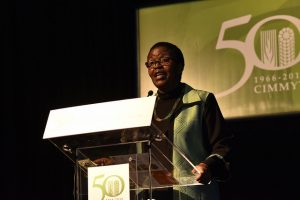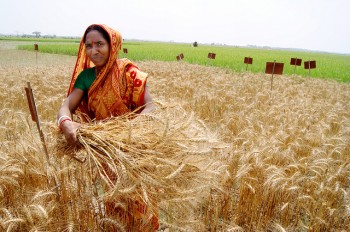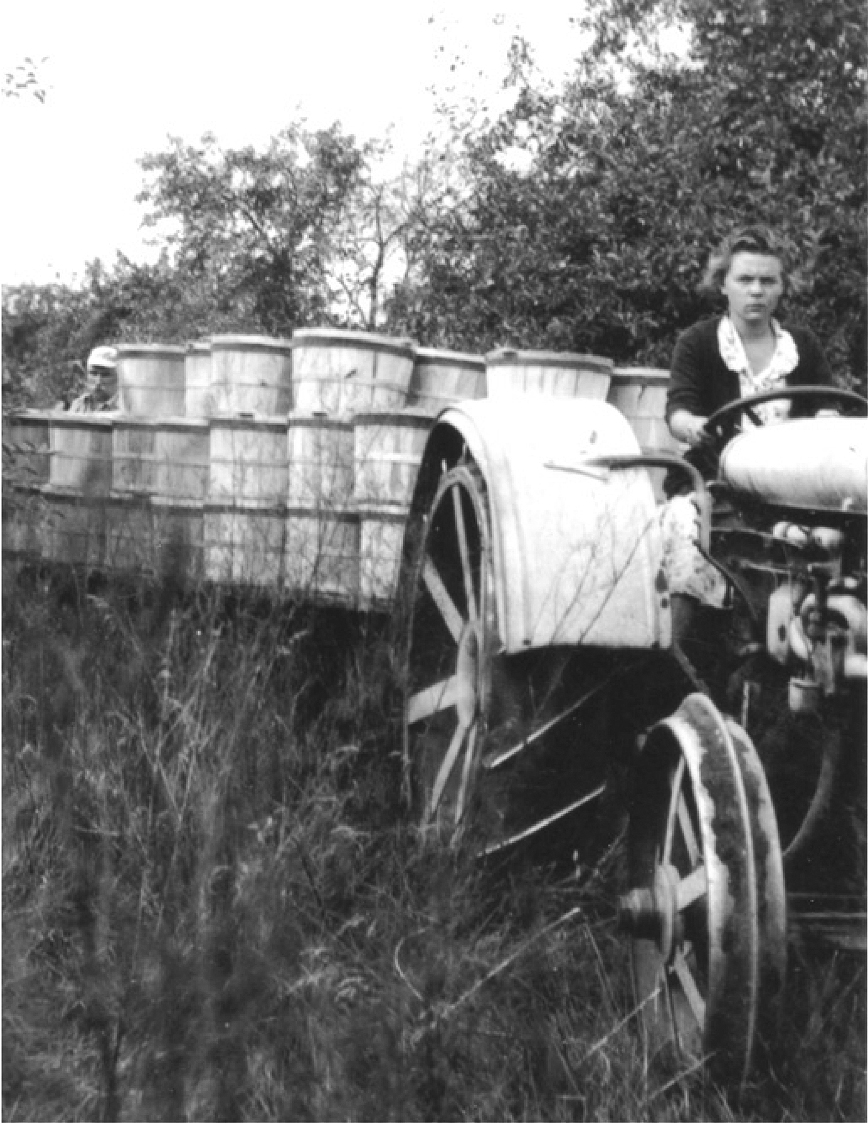Cornell University
Food security requires acceleration of advanced science, not just “feeding,” CIMMYT 50 delegates say
 Innovations
Innovations
The agriculture for development sector must begin “nourishing” families with nutrition-sensitive interventions instead of focusing on “feeding,” says Lindiwe Majele Sibanda.
A Chat With: Mark Lynas – sustainable agriculture key to food security amid climate change
 Climate adaptation and mitigation
Climate adaptation and mitigation
Sustainable agricultural practices are key to feeding the global population in the face of climate change said Environmentalist Mark Lynas.
Helping Nepalese farmers adapt to climate change
 Climate adaptation and mitigation
Climate adaptation and mitigation
Cornell University’s Linda McCandless describes some of the agricultural challenges Nepalese farmers face after the devastating 2015 earthquake
A woman for wheat: Maricelis Acevedo takes on new role
 Gender equality, youth and social inclusion
Gender equality, youth and social inclusion
Maricelis Acevedo, newly appointed associate director for science for the Delivering Genetic Gain in Wheat project left her island home of Puerto Rico in 2003 to pursue a career as a pathologist and has been traveling the world ever since.
Inaugural Paula Kantor Award recognizes work on agriculture, gender, improved diets
 Gender equality, youth and social inclusion
Gender equality, youth and social inclusion
Post-doctoral fellow Soumya Gupta is the winner of the inaugural Paula Kantor Award for Excellence in Field Research, the International Centre for Research on Women announces.
Global conference underscores complex socio-economic role of wheat
 Capacity development
Capacity development
A recent gathering of more than 600 scientists highlighted the complexity of wheat as a crop and emphasized the key role wheat research plays in ensuring global food security.
The world’s largest maize ear contest 2015
 Nutrition, health and food security
Nutrition, health and food security
Scientist Denise Costich describes her experience as a judge in the contest to find “The World’s Largest Maize Ear” held in Jala, Nayarit, Mexico.
Replacing gender myths and assumptions with knowledge
 Gender equality, youth and social inclusion
Gender equality, youth and social inclusion
If we are to be truly successful in improving the lives of farmers and consumers in the developing world, we need to base our interventions on the best evidence available.
Super woman: Rosalind Morris an “outstanding wheat cytogeneticist”
 Gender equality, youth and social inclusion
Gender equality, youth and social inclusion
She conducted genetic studies with worldwide importance in explaining wheat genetics.
SUPER WOMAN: Nobel winner Barbara McClintock discovered “jumping genes”
 Gender equality, youth and social inclusion
Gender equality, youth and social inclusion
SUPER WOMAN: Jessica Rutkoski conquers math demons, finds success as wheat breeder
 Gender equality, youth and social inclusion
Gender equality, youth and social inclusion
In high school, Jessica Rutkoski was similar to many girls who suffer from the tedium and complexity of high school arithmetic – she avoided it.
Industrial water run-off can sustainably boost crop production
 Nutrition, health and food security
Nutrition, health and food security
An irrigation project in Ethiopia uses industrial runoff from a brewery to nourish wheat crops, diverting it from a nearby river and protecting the health of local residents.


